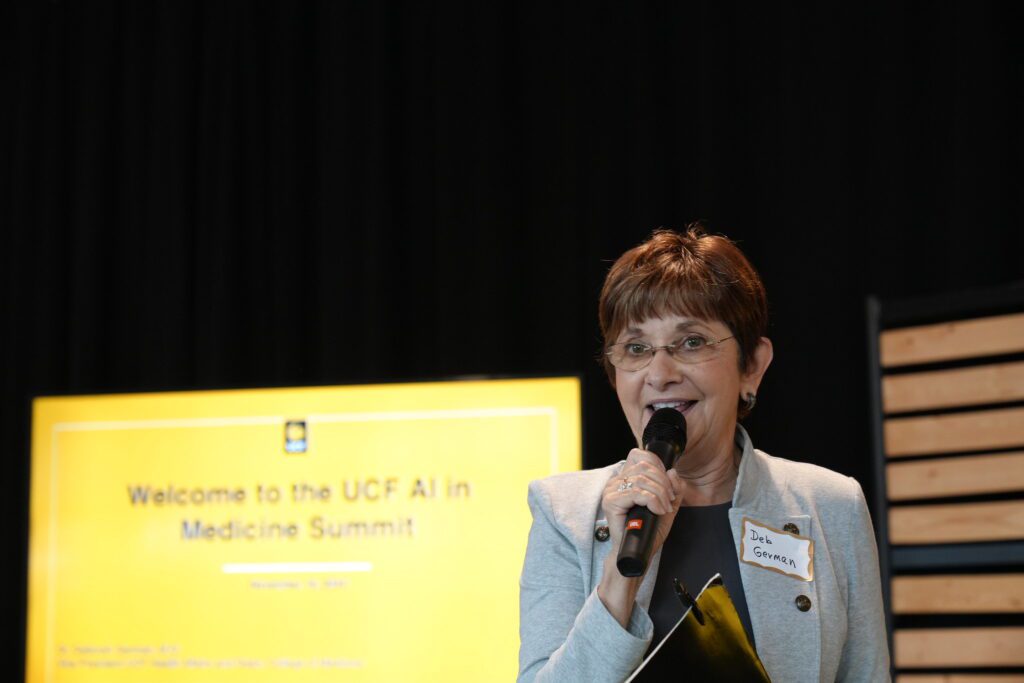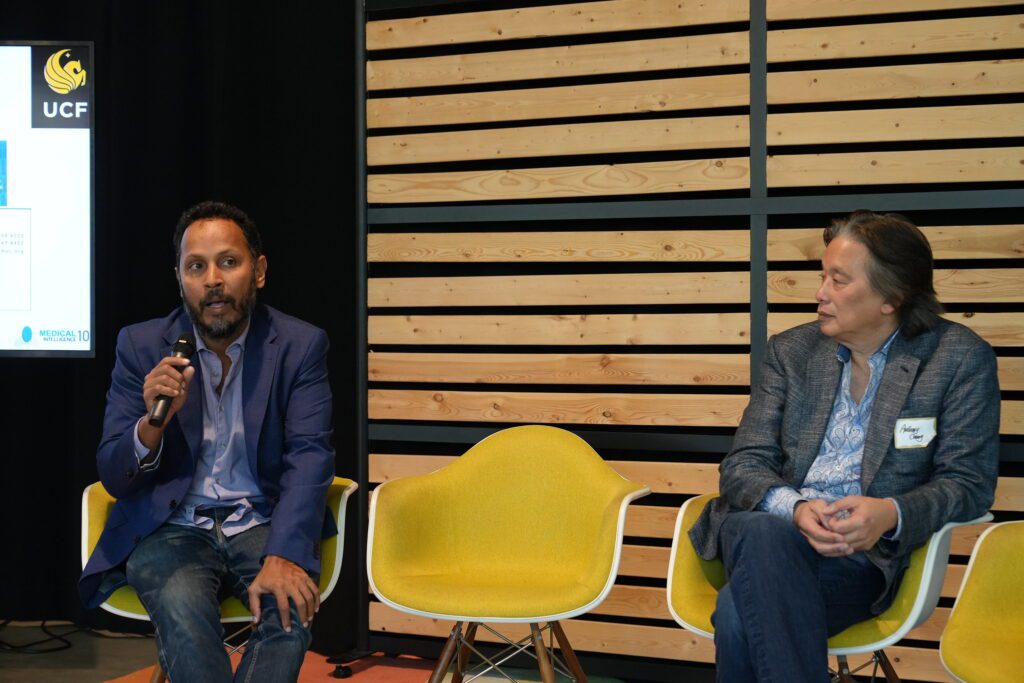
As AI continues to be a hot topic, experts from around the world gathered in Lake Nona recently to discuss how physicians and scientists can use the technology to improve patient care.
“We are not yet sure how much AI will affect everything we do, but I am very optimistic that it will be a useful tool and advance our research,” Dr. Deborah German, UCF vice president for health affairs and dean of the UCF College of Medicine told the gathering.

Experts see the potential for AI to help doctors stay current with rapidly increasing medical findings. Nurses see potential for the technology to handle administrative duties like scheduling, freeing up their schedules to spend more time with patients. Physicians have already begun using AI to diagnose melanoma, the deadliest of skin cancers, where early detection is a key to survival.
“When doctors have conflicting opinions on identifying melanoma for example, it’s not because our pathologists are not good. It’s just that any single pathologist looking at melanoma at most probably sees 100,000 examples, whereas AI can see hundreds of millions,” said Dr. Anthony Chang, a physician, AI expert and keynote speaker for the event.
“How often does medical knowledge double?” he asked the audience. “It doubles every 35 days. Is there any hope for doctors keeping up with his or her field? It is no longer possible without some sort of assistance, and AI could be that assistance.”
To foster the growth of AI, Dr. Chang, who received an M.D. from Georgetown University and a master’s degree in Artificial Intelligence from Stanford, says healthcare will need more people who understand both technology and medicine at a deep level.
“The implementation and adoption of emerging technology long-term has to be driven by people who are ‘bilingual’ in this sense,” he said. “I have hope for the future that this generation and the next generation to do that.”
Chang said AI could lead the way to more compassionate care in the future. The technology is not pressured by time constraints the way physicians are. Given more time, he says, physicians have an opportunity to reflect on the way they care for patients and how they can grow as compassionate providers.
Dr. Tracy MacIntosh, UCF associate professor of emergency medicine, has worked in emergency rooms for years and sees unique opportunities for AI to improve the efficiency of care in an often-hectic environment.
She gave the example of a patient who was admitted to the hospital with a fractured ankle. The patient does not speak English and wanted to leave the hospital as fast as possible. So her ankle was put in a cast, she was discharged with care instructions and told to follow up with a primary care physician.
She returned to the hospital with severe swelling and pain because she was walking on the cast against instructions. Her condition put her at risk for amputation.
“How could AI help us prevent this from happening again?” Dr. MacIntosh asked the crowd full of innovators. “How can we use AI to improve communication, streamline the follow-up, and develop care pathways and oversight to help these patients from falling through the cracks?”
Dr. MacIntosh also highlighted the potential pitfalls of AI. Currently, she said, AI-generated discharge instructions in English are excellent. However, for other languages, they are lower quality, potentially perpetuating healthcare disparities. But she believes the innovators of the world can solve these problems and use AI to improve health equity.
“AI can decrease my own biases and provide a more objective perspective,” she said.
The summit also showed how patients can use AI to help find care. Dr. Dexter Hadley, assistant professor of pathology who helps lead the College of Medicine’s AI initiatives and organizer of the event, gave the example of a close friend who was recently diagnosed with stage 4 pancreatic cancer.
“My friend Bando, who is like a grandpa to my son, was diagnosed with stage 4 pancreatic cancer three weeks ago,” he said. “This was a shocking diagnosis, I’m supposed to be a physician and I’m clueless what to do for this near member of my family.”
He used a ChatGPT model, he was able to learn treatment options and how to find clinical trials in the area.
They are now heading to Moffitt Cancer Center this week to participate in the clinical trial they found through ChatGPT.

The event concluded with a poster competition where students showed their own AI innovations.
Michael Hsieh, a second-year UCF medical student, won first place for his large language model, like ChatGPT, hosted entirely locally on a patient’s phone or computer.
Today, a growing portion of the population ask medical questions to AI chat bots. However, there are concerns that in doing so, they are putting their private medical information onto the internet. By hosting these chat bots locally, Hsieh hopes to provide a more secure environment for people to get the information they need.
“The opportunity for AI in medicine is super exciting. It can solve some biases and standardize healthcare, but we have to make sure we are stewarding it correctly,” he said. “There is a lot of concern about it being safe, secure and unbiased so we need good people to make sure the systems are equitable, cost effective and accurate.”